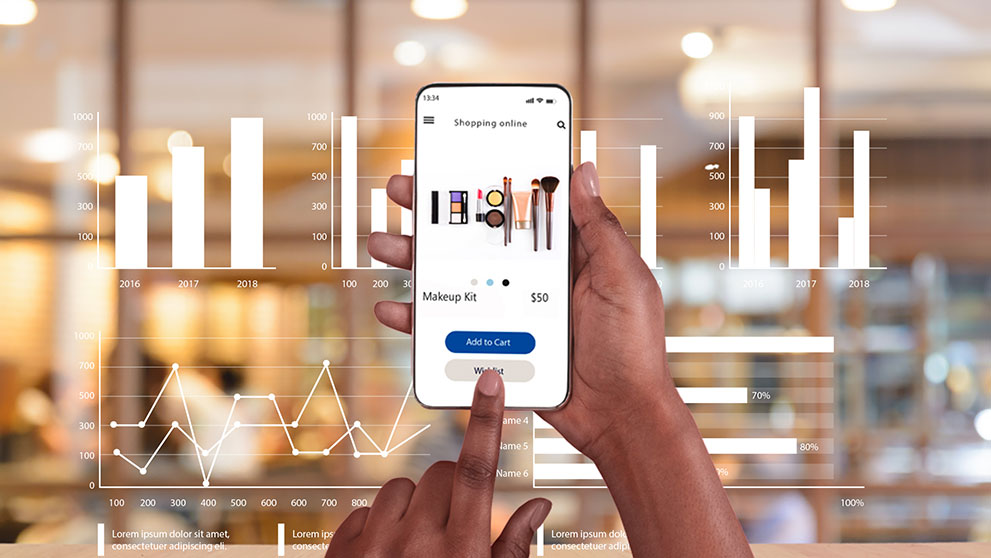Grow your business with the Discover newsletter
Logistics advice & insights straight to your inbox
Subscribe now
Imagine a world where your customers can browse your products, ask questions, and make purchases – all within the platforms they already use every day. That's the magic of social commerce, a fusion of e-commerce and social media that's transforming the way businesses connect with consumers.
Social commerce is shaking up how businesses connect with their customers, and it’s no surprise because the growth prospects are huge. Nigeria’s social commerce industry is expected to grow by 38.3% to $1.55 billion by the end of 2024.
Want to get a grasp of the benefits of social commerce, uncovering its deep significance in navigating the Nigerian market?
Then, read on.
Imagine selling directly on Facebook, Instagram, or even WhatsApp! That's the power of social commerce – e-commerce with a social twist. It's all about turning your social media presence into a bustling marketplace.
Think of it this way: you showcase your products, answer questions in real-time, and close deals – all within these familiar platforms. The best part? High engagement (likes, shares, comments) is your golden ticket to success.
For Nigerian entrepreneurs, this is a game-changer. Platforms like Facebook, Instagram, and WhatsApp let you connect with new customers, promote your products, and even build relationships through active conversations. It's e-commerce that feels more like hanging out with friends – and that's a recipe for building a loyal following.
The benefits of social commerce are clear:
Reach: Expand your customer base by tapping into vast social media audiences.
Engagement: Build deeper relationships through real-time conversations and personalized interactions.
Convenience: Streamline the shopping experience with seamless on-platform transactions.
With Nigeria's social commerce industry projected to grow exponentially, businesses that embrace this trend now will be poised for significant growth in the coming years.
Social commerce is here to shake things up, and it's packed with benefits for your business. Here's why you should jump on board:
Reach More, Win More: Forget limited contact lists. Social commerce lets you connect with a massive audience across platforms like Facebook, Instagram, and TikTok. It's like opening a new shop in every corner of the internet, bringing in potential customers you might have never found before.
Conversations that convert: Social commerce isn't just about selling – it's about building relationships. You can create engaging posts, answer questions in real-time, and show your expertise. This builds trust with potential buyers and turns them into loyal fans.
Shopping made simple: Need office supplies yesterday? Social commerce makes it easy for business buyers to find you. Platforms like Facebook Marketplace can connect them with what they need instantly. Plus, with custom storefronts and messaging features, buying and selling become a breeze for everyone involved.
You can take your business to the next level, really. Social commerce is waiting to help you connect, build trust, and close deals faster than ever before.
To thrive in the social commerce landscape, Nigerian businesses must adopt a strategic approach. Consider these essential strategies:
Platform Selection: Choose the platforms where your target customers are most active. For example, Gen Z shoppers may prefer TikTok and Instagram, while business buyers favor platforms like Facebook Marketplace.
Content Strategy: Develop compelling content that showcases your products and builds brand loyalty. Mix in engaging videos, stunning images, and valuable insights to keep your audience coming back.
Community Engagement: Turn your business into a community hub by actively participating in conversations, responding to comments, and fostering a sense of belonging among your followers.

DHL emerges as a reliable partner for business enterprises in Nigeria. With a range of customised services, DHL helps businesses navigate the markets by tapping into its vast logistics network. DHL assists in smooth order handling, efficient inventory management, and optimising supply chain processes, all tailored to suit the unique needs of businesses venturing into social commerce.
With DHL's cutting-edge shipping solutions, business enterprises can rest assured of prompt delivery, ensuring customer satisfaction and seamless operations. Open a business account with DHL today to get started.
The future of e-commerce is here, and it's social. By embracing social commerce and partnering with DHL, Nigerian businesses can unlock new growth opportunities, deepen customer relationships, and position themselves for success in the digital age.